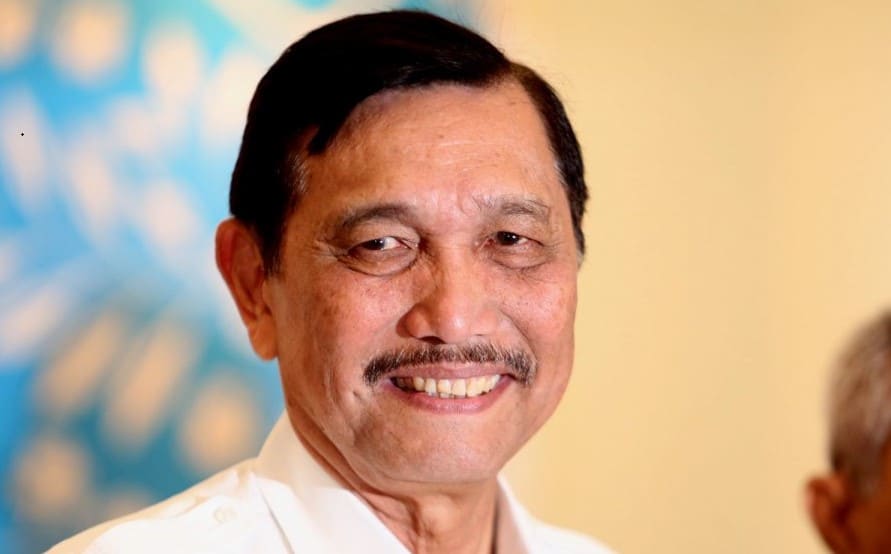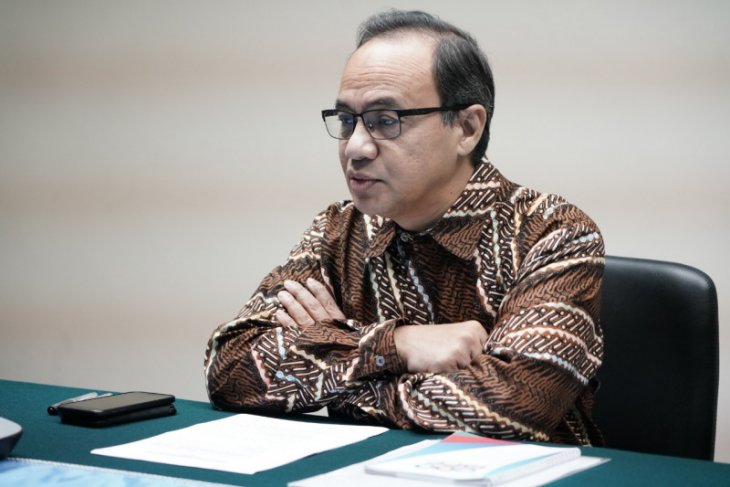Streaming
Program Highlight
Company Profile

Ani Hasanah
August

Coordinating Minister for Maritime Affairs and Investment Luhut Binsar Pandjaitan affirmed that the government was formulating regulations to enable foreigners to work from Bali while they are on a vacation.
"Those foreigners, with expertise in technology, IT, can work from Bali. We are mulling over that aspect, and we encourage it. We just have to chalk out the rules now," Pandjaitan noted in Jakarta on Thursday.
The government is currently channeling its focus on increasing the number of domestic tourist visits to facilitate the country’s tourism recovery. The government has set a target to increase the contribution of domestic tourists to 70 percent, from the current 50 percent, the minister noted.
"I think that until the end of the year, we will not be allowing foreign tourists. Let us consolidate ourselves. I have notified the president of the vast amount of money owing to no umrah (minor Hajj pilgrimage) now. That is nearly 500 thousand to one million people, who own the funds for Umrah," he explained.
The minister also echoed the government’s intent to cooperate with several international hospitals, so that those heading to Malaysia and Singapore for treatment would no longer need to go abroad.
"We want them to spend that money in the country itself. We are also keen to engage with international hospitals, such as Mayo and Johns Hopkins, or other well-known hospitals, and build them in Bali," he stated.
The presence of international hospitals would also aid in reforming the pharmaceutical industry in Indonesia. To support this, the government is also contemplating on providing easy access to people, who can enter Indonesia, including international doctors.
All these plans will be in keeping with national interests, he stated.
Indonesian Vice President Ma'ruf Amin, on Thursday, highlighted that Jakarta had become the sole province to conduct massive swab testing to thwart the transmission of the novel coronavirus disease (COVID-19) among the capital city's residents.
"Based on our data, Jakarta has undertaken nearly 50 percent of the total swab testing efforts, while other provinces have yet to conduct similar COVID-19 tests on a massive scale with as much seriousness," he told participants of a virtual meeting on Indonesia's economic recovery in Jakarta.
As of August 11, the Jakarta provincial administration has conducted 469,582 polymerase chain reaction (PCR) tests, or equal to 44,113 PCR tests per one million people, as compared to the population ratio.
Jakarta's PCR testing ratio has exceeded that of the World Health Organization's standard that necessitates 10,000 PCR tests per one million people.
Amin further noted that massive swab testing is part of the preventive measures that should be undertaken to halt the spread of COVID-19 apart from contact-tracing and applying health protocols to flatten the curve of COVID-19 cases.
In reviving Indonesia's economy amid the ongoing COVID-19 pandemic, the government's COVID-19 Handling and National Economic Recovery Committee members are expected to work hard to overcome hurdles that may potentially hinder recovery efforts, he noted.
COVID-19 initially struck the Chinese city of Wuhan at the end of 2019 and thereafter spread to various parts of the world, including countries in the Asia-Pacific region.
The Indonesian government made an official announcement on the country's first confirmed cases on March 2 this year.
To tackle this COVID-19 pandemic, Indonesia is leaving no stone unturned to develop a vaccine to fight the virus.
To this end, spokesperson for the COVID-19 Handling Task Force Wiku Adisasmito echoed the government's aspirations to prioritize the triad of safety, precision, and speed in the domestic production of the COVID-19 vaccine.
"We must say that in the development of this vaccine, the Indonesian government prioritizes three important aspects, with the first about it being safe; second, being precise; and third, being fast," Adisasmito emphasized in his recent statement.
State-owned pharmaceutical holding company Bio Farma has recently collaborated with Chinese company Sinovac to produce the COVID-19 vaccine for Indonesia. The COVID-19 vaccine material from Sinovac arrived in Indonesia on July 19.
Currently, Indonesian scientists are also working on a vaccine, named after the country's national flag, Merah Putih (Red and White). (ANTARA)
Jakarta (VOI News) - Indonesian Foreign Minister Retno LP Marsudi as the main speaker in the webinar with the theme 75 Years of UN Critical Reflection, Thursday in Jakarta said that the Covid-19 pandemic must open the eyes of all countries to promote togetherness and promote collaboration encouraged by the United Nations. At the age of 75, according to Retno, the UN must be able to manage and respond to world demands. One of them is in supporting efforts to mitigate pandemics and the socio-economic impacts of pandemics.
"In the short term, the UN must support the efforts of the international community in overcoming the pandemic and its socio-economic impacts. This includes access to medicines and vaccines for all. In the long term, the UN must be able to help improve global health governance, including efforts to prevent future pandemics,"said Retno Marsudi.
Furthermore, Retno Marsudi also reminded the UN to be able to anticipate various challenges in the world in the future. According to her, the challenges of the future world will not be lighter than today.
"This means that the United Nations must move not only based on current conditions but also be able to anticipate future dynamics. The UN's early warning function should be strengthened especially for non-traditional challenges and emerging issues. These anticipatory steps must be accompanied by innovation so that the UN system and performance do not lag behind the challenges faced," said Retno Marsudi.
Retno Marsudi hopes that the UN can work by prioritizing the development of its member countries. She said the UN risks losing the world's faith in multilateralism if it is unable to respond to global challenges. (VOI/Ndy /AHM)
August

Photo archives: Acting spokesperson for the Indonesian Foreign Ministry, Teuku Faizasyah, at an online media briefing on Wednesday. (Handout Kemlu RI)
Indonesia is encouraging cooperation with Russia in the health sector, including in COVID-19 vaccine development and research in health technology, an official said.
“What we are encouraging now is a further meeting to discuss the technical aspects of the cooperation between the two countries,” spokesperson for the Indonesian Foreign Ministry, Teuku Faizasyah, said in an online media briefing on Thursday.
He said the health ministries of the two countries discussed cooperation on July 5, 2020. The discussion was a follow-up to a telephone conversation between Indonesian President Joko Widodo and Russian President Vladimir Putin on April 13, 2020.
However, he refused to divulge whether the cooperation would cover the COVID-19 vaccine developed by Russia.
President Putin on Tuesday (August 11, 2020) announced that Russia was the first country in the world to approve a COVID-19 vaccine after two months of human clinical trials.
However, the Russian decision to approve the use of the vaccine has worried experts.
Only 10 percent of the clinical trial for the Russian vaccine candidate has successfully been conducted. Several scientists are worried about Moscow giving priority to state prestige over knowledge and security.
The vaccine dubbed "Sputnik V" has been developed by Gamaleya Institute, and Russia plans to produce 5 million doses of the vaccine per month during the December, 2020 -January, 2021 period.
Several countries, including the Philippines and Kazakhstan, have expressed a keen interest in establishing cooperation with Russia over the vaccine. (ANTARA)


